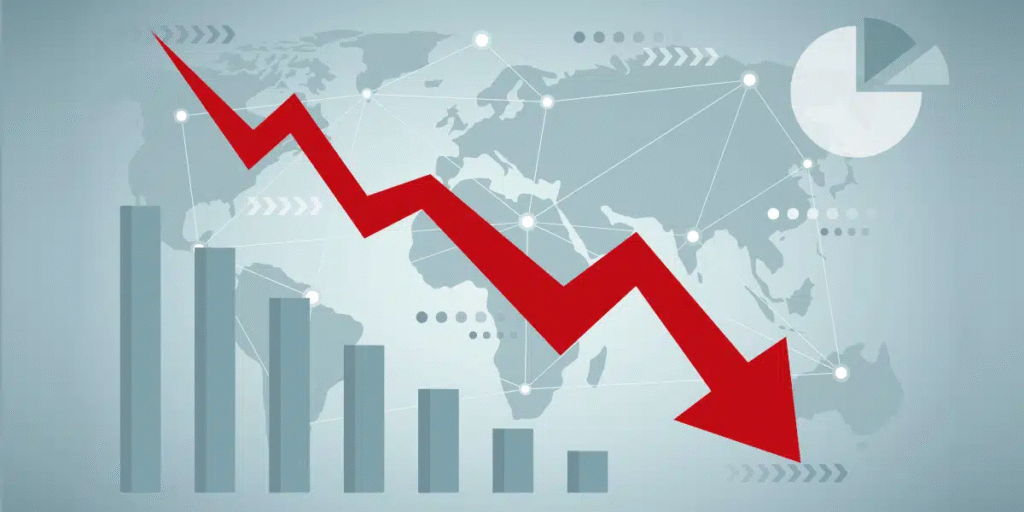The word “recession” carries a heavy weight, conjuring images of stock market turmoil, rising unemployment, and widespread financial anxiety. For anyone who has worked hard to build up their savings, the prospect of an economic downturn can feel like a direct threat to their financial security. The natural instinct is often to pull back, hoard cash, and wait for the storm to pass.

However, financial experts agree that a recession is not a time for panic, but for a calm and calculated strategy. While defensive measures are crucial, a downturn also presents rare opportunities for those who are prepared. The key to not only surviving a recession but emerging stronger is to approach your savings with a two-part plan: first, fortify your financial defenses to ensure stability, and second, play smart offense to plant the seeds for future wealth.
Part 1: Fortify Your Financial Defenses – The Non-Negotiables
Before you even think about investing or seeking opportunities, you must ensure your financial foundation is rock-solid. A recession tests your stability, and these defensive moves are your first line of defense.
1. Stress-Test and Maximize Your Emergency Fund:
This is the single most important action to take. An emergency fund is your personal safety net, and in a recession, the risk of job loss or reduced income increases dramatically. The standard advice of having 3-6 months’ worth of living expenses saved becomes a critical mandate.
- What to do: Re-calculate your essential monthly expenses (housing, utilities, food, insurance) and compare it to your current emergency fund. If you have less than six months’ worth, your top priority should be to aggressively save until you reach that target. Cut discretionary spending and direct every spare dollar here.
- Where to keep it: Your emergency fund must be liquid and safe. A High-Yield Savings Account (HYSA) is the ideal vehicle. It offers significantly better interest rates than a traditional savings account, helping to partially offset the effects of inflation, but your money remains fully accessible and FDIC-insured. Do not invest your emergency fund in the stock market.
2. Aggressively Attack High-Interest Debt:
High-interest debt, particularly credit card debt, is a financial cancer that becomes malignant during a recession. When your income is less certain, carrying balances with 20%+ APRs is a recipe for disaster, as interest payments will devour your cash flow when you need it most.
- What to do: Make a plan to pay down these debts as quickly as possible. The guaranteed return on paying off a 22% interest credit card is 22%—a rate of return you are unlikely to find anywhere else, especially in a down market. Consider this a high-yield, risk-free investment in your own financial stability.
Part 2: Play Smart Offense – Seizing Opportunities
Once your defenses are secure, you can shift your focus to the opportunities that a recession provides. History has shown that fortunes are not made when markets are at all-time highs, but when quality assets are on sale.
3. Continue Investing (Don’t Dare Stop):
The biggest mistake investors make during a downturn is panicking and selling their investments or stopping their regular contributions. This is the equivalent of abandoning a ship just before it’s rescued.
- What to do: Stick to your long-term investment plan. If you are making regular contributions to a 401(k) or IRA, continue to do so without fail. This practice, known as Dollar-Cost Averaging (DCA), is incredibly powerful in a recession. Your fixed monthly investment automatically buys more shares of stocks or funds when prices are low. This lowers your average cost per share, setting you up for supercharged returns when the market inevitably recovers. Remember the cardinal rule: you only lose money if you sell at the bottom.
4. Focus on Quality Assets on Sale:
A recession is a “fire sale” for high-quality investments. It’s the time to be a discerning buyer, not a fearful seller.
- What to do: If you have capital to deploy beyond your emergency fund and debt payments, focus on “blue-chip” companies and broad market index funds. Look for businesses with strong balance sheets, consistent cash flow, and durable competitive advantages—the ones you know will survive the downturn and thrive on the other side. A low-cost S&P 500 ETF is the simplest and most effective way for most people to execute this strategy, as it provides diversified exposure to America’s most resilient companies.
5. Invest in Yourself (The Ultimate Recession-Proof Asset):
One of the most overlooked yet highest-return investments during a recession is in your own “human capital.”
- What to do: Use this time to enhance your skills and increase your value in the job market. Take an online course, earn a professional certification in your field, learn a high-demand skill like data analysis or digital marketing, or simply refine your resume and professional network. A more competitive job market means your skills are your greatest asset. Investing in yourself provides a return that no market crash can ever take away and makes you more resilient to the primary risk of a recession: unemployment.
Conclusion:
A recession is a test of preparation and discipline, not a reason for fear. By first securing your immediate financial stability with a robust emergency fund and a plan to eliminate high-interest debt, you give yourself the foundation and the confidence to act strategically. From there, continuing to invest systematically, focusing on quality assets, and investing in your own skills will transform a period of economic uncertainty into a powerful opportunity for long-term wealth creation. Those who act with a clear head and a steady hand are the ones who will not only weather the storm but will sail out of it on a stronger, more prosperous course.